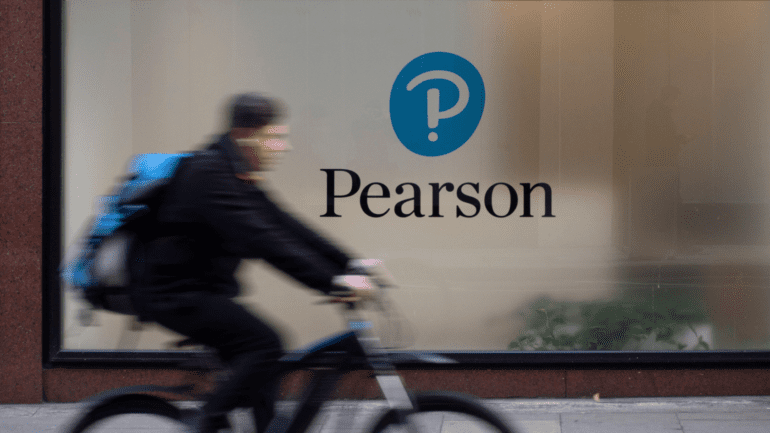TL;DR:
- Pearson is developing its own AI-powered products for education.
- The company is taking legal action against businesses that use Pearson content to train their AI models.
- Pearson’s AI products will use Pearson’s content for training, making them more reliable and trustworthy.
- Pearson will introduce AI-powered summaries of its educational videos and AI-generated multiple-choice questions for areas where students might need more help.
- Pearson’s CEO, Andy Bird, stated that the company is committed to protecting its intellectual property.
- Bird emphasized that Pearson’s AI products are different from Chegg, which focuses on homework assistance.
- Pearson is in the business of helping students learn and improve their skills, not in the business of answering.
- Pearson’s innovative use of AI is set to revolutionize the education industry and transform the way people learn and access educational resources.
Main AI News:
Pearson, the world’s leading textbooks giant, has recently announced its plans to develop its own artificial intelligence (AI)-powered products, which include AI-powered summaries of Pearson educational videos and AI-generated multiple-choice questions. These products will be rolled out for Pearson+ members this month.
However, Pearson is currently taking legal action against businesses that use Pearson content to train their AI models. According to Pearson’s CEO, Andy Bird, the company’s advantage is that its AI products would use Pearson content for training, which would make them more reliable.
Bird revealed that Pearson had already sent out a cease-and-desist letter to a company that had violated its intellectual property (IP) rights. “We make great efforts and will continue to do to protect our IP. We are in litigation with a company and have sent a cease-and-desist letter, but I won’t go into any further specifics,” Bird said.
He added that Pearson was monitoring the situation regarding other businesses using Pearson content to train their AI. Bird also noted that it is usually easy to tell what a large language model such as ChatGPT has been trained on because “you can ask it.”
“We’ve also been approached to license our IP and, at the time, decided not to go down that route. But there may be benefits of licensing our IP in certain circumstances,” Bird said.
In addition, Bird pointed out that Pearson’s AI products are different from Chegg, which focuses on homework assistance. “We’re in the business of helping you learn and improve your skills, not in the business of answering,” he said.
As Pearson is in the business of learning, its products would be hard to replace. “If all we had to do was read a set of facts in order to learn, there’d be no need for schools, colleges, and teachers.”
With its commitment to protecting its intellectual property, Pearson is poised to remain at the forefront of the education industry’s digital transformation. As the world continues to shift towards a more digital landscape, Pearson’s innovative use of AI is sure to revolutionize the way people learn and access educational resources.
As part of its plans, Pearson will be introducing AI-powered summaries of its educational videos, which will provide students with an easier and more efficient way to review course material. Additionally, the AI-generated multiple-choice questions will be a valuable tool for students who need more help in specific areas.
Pearson’s AI products will use Pearson’s content for training, making them more reliable and trustworthy. This move will set a new standard in the education industry, as other companies will need to follow Pearson’s example and develop their own AI-powered products using their own content.
Conlcusion:
Pearson’s commitment to developing AI-powered products and protecting its intellectual property is a significant development in the education market. By using its own content to train its AI models, Pearson is setting a new standard for reliability and trustworthiness in the industry.
Additionally, the introduction of AI-powered summaries and multiple-choice questions is likely to improve student’s learning experiences and increase their engagement with course materials. With Pearson at the forefront of the education industry’s digital transformation, other companies will need to follow its lead and develop their own AI-powered products to remain competitive.

